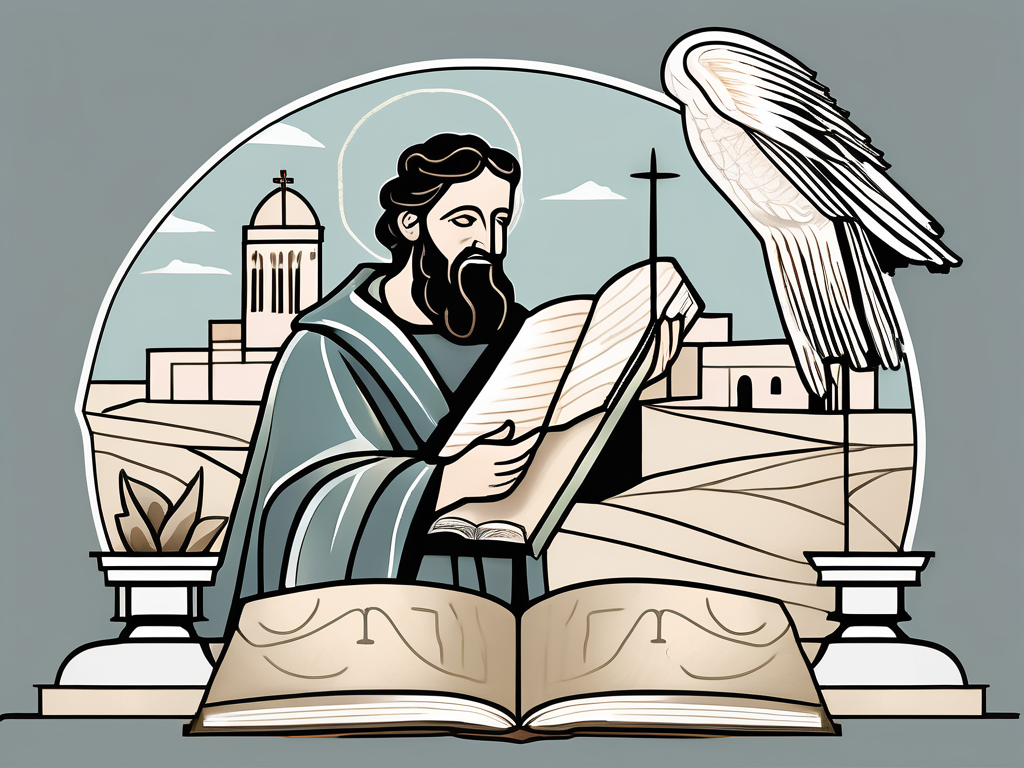Saint Paul of the Cross, also known as Paul Danei, was an Italian mystic and the founder of the Passionists, a religious order devoted to contemplation and the imitation of the Passion of Christ. His life and teachings continue to inspire people around the world even after his death. Let’s dive into his remarkable journey and the impact he had on Catholic thought and modern Christianity.
Early Life and Family Background
Born on January 3, 1694, in Ovada, Italy, Paul Danei was raised in a devout Catholic family. His parents, Luke Danei and Anna Maria Massari, instilled in him a deep love for God and a sense of spiritual discipline. From a young age, Paul displayed a passionate and contemplative nature, spending long hours in prayer and meditation.
Paul’s upbringing in a large family provided him with a rich and vibrant environment. As the second of sixteen children, he experienced the joys and challenges of sibling relationships. Growing up in a household filled with laughter, love, and faith, Paul’s family nurtured his spiritual growth and encouraged him to pursue his calling.
Birth and Childhood
Saint Paul of the Cross came into this world as the second of sixteen children. His birth brought joy and hope to his family, who recognized his unique disposition and potential for divine connection. Throughout his childhood, Paul exhibited a tender heart and a strong desire to serve God.
As a child, Paul was known for his kindness and compassion towards others. He would often spend his free time helping those in need, whether it was assisting the elderly or comforting the sick. His innate sense of empathy and selflessness set him apart from his peers, foreshadowing the saintly path he would later embark upon.
Family Influence on Spiritual Development
Paul’s parents greatly influenced his spiritual development. Their devout faith and constant example of Christian virtue laid the foundation for his future calling. As Paul grew older, his parents’ unwavering support and encouragement further solidified his commitment to a life dedicated to God.
Luke and Anna Maria Danei’s home was a haven of faith, where prayer and devotion were central to their daily lives. They instilled in Paul a deep reverence for the sacraments and a profound understanding of the Catholic faith. Their guidance and teachings shaped his understanding of God’s love and mercy, fueling his desire to share these truths with others.
Throughout his formative years, Paul witnessed his parents’ unwavering faith in the face of adversity. Their resilience and trust in God’s providence served as a constant source of inspiration for him. Their steadfast commitment to living out their faith taught Paul the importance of perseverance and unwavering trust in God’s plan.
Spiritual Awakening and Formation of Passionists
It was during his early twenties that Paul Danei experienced a profound spiritual awakening that would shape the rest of his life. In a vision, he saw himself wearing a black habit with a white cross on his heart, symbolizing his identification with the sufferings of Jesus.
This vision was not just a fleeting moment of inspiration for Paul Danei; it was a transformative experience that would set him on a path of service and sacrifice. He interpreted the vision as a calling from God, a calling to establish a religious order that would focus on proclaiming the Passion of Christ and offering spiritual guidance to those seeking a deep and personal encounter with God.
Paul Danei’s spiritual transformation was not just a personal journey; it was a mission to bring the message of Christ’s suffering and redemption to the world. He felt a deep desire to imitate Christ’s suffering and bring comfort to those in need. This desire would become the foundation of the Congregation of the Passion, commonly known as the Passionists.
Vision and Spiritual Transformation
The vision that Paul Danei had marked a turning point in his life. It was a moment of clarity and purpose, a moment when he realized that he was being called to something greater than himself. The vision of himself wearing a black habit with a white cross on his heart was a powerful symbol of his identification with the sufferings of Jesus.
From that moment on, Paul Danei dedicated himself to a life of service and sacrifice. He saw himself as a disciple of Christ, called to follow in his footsteps and bring the message of his Passion to the world. This transformative experience set him on a path of selflessness and devotion.
Founding of the Passionists
In 1720, Saint Paul of the Cross founded the Congregation of the Passion, commonly known as the Passionists. The order grew rapidly, attracting men who shared Paul’s deep desire to imitate Christ’s suffering and bring comfort to those in need.
The Passionists took vows of poverty, chastity, and obedience, committing themselves to a life of simplicity and self-denial. They dedicated themselves to a life of contemplative prayer, seeking to deepen their relationship with God and draw closer to the suffering of Christ.
But the Passionists did not just withdraw from the world; they actively ministered to the spiritual needs of the people. They preached the message of Christ’s Passion, offering guidance and support to those seeking a deeper understanding of their faith. They provided comfort and solace to the sick and the dying, offering them hope and reassurance in their darkest moments.
The Passionists became known for their compassion and their commitment to serving others. They established retreat centers and missions, reaching out to people from all walks of life and offering them a place of refuge and spiritual renewal. Through their words and actions, they sought to bring the message of Christ’s suffering and redemption to a world in need.
Saint Paul’s Teachings and Philosophy
One of the key pillars of Saint Paul’s teachings was his emphasis on the Passion of Christ. He believed that by reflecting on Christ’s suffering, individuals could gain a deeper understanding of God’s love and mercy. Paul’s writings and sermons conveyed this message, inspiring countless individuals to embrace their own crosses and unite them with Christ’s sacrifice.
Saint Paul urged his followers to look beyond the superficialities of life and instead focus on the redemptive power of Christ’s Passion. He encouraged them to carry their own crosses, offering their sufferings as a means of participating in Christ’s saving work. Paul’s teachings challenged people to find meaning in their hardships and to trust in God’s providence even in the midst of trials.
In addition to his emphasis on the Passion of Christ, Saint Paul’s teachings had a significant impact on Catholic thought. His profound understanding of theology and spirituality influenced the development of key doctrines within the Catholic Church. Paul’s writings on topics such as justification by faith, the role of grace, and the sacraments continue to shape Catholic theology to this day.
Furthermore, Saint Paul’s teachings sparked a renewed interest in spiritual disciplines among Catholics. His emphasis on the importance of contemplative prayer inspired many to seek a deeper connection with God through silent reflection and meditation. Paul understood the transformative power of prayer and encouraged his followers to cultivate a vibrant prayer life that would lead to a closer relationship with God.
The Passionists, a religious order founded in the 18th century, became known for their devotion to the Eucharist and the veneration of the Cross. Inspired by Saint Paul’s deep spirituality and his unwavering commitment to Christ’s sacrifice, the Passionists dedicated themselves to spreading the message of Christ’s Passion and its significance in the lives of believers. Through their preaching and ministry, they sought to help others embrace their own crosses and find hope and redemption in Christ.
In conclusion, Saint Paul’s teachings and philosophy centered around the Passion of Christ and the transformative power it holds. His emphasis on carrying one’s own cross and finding meaning in suffering continues to inspire individuals to this day. Furthermore, his influence on Catholic thought and spirituality has shaped the theology and practices of the Church, leading to a deeper understanding of God’s love and mercy.
Miracles and Canonization
Saint Paul of the Cross was recognized not only for his spiritual insights but also for the miracles attributed to him during and after his lifetime. These extraordinary events served as a testament to his holiness and the efficacy of his intercession.
Reported Miracles and Wonders
Throughout his ministry, Saint Paul of the Cross was said to possess the gift of healing and prophecy. Numerous reports detailed the miraculous healings of the sick and the afflicted who sought his intercession. These demonstrations of divine power only solidified his reputation as a saintly figure.
Path to Sainthood
In 1867, almost a century after his death, Saint Paul of the Cross was canonized by Pope Pius IX. His sanctity and the impact of his work were officially recognized by the Catholic Church. Today, he is honored as a saint and a model of holiness, serving as an inspiration for those seeking a deeper relationship with God.
Legacy and Influence on Modern Christianity
Saint Paul of the Cross’s teachings and the religious order he founded continue to have a profound impact on modern Christianity.
Impact on Religious Orders
The Passionists, who adopted Paul’s vision as their own, have spread throughout the world, offering spiritual guidance and promoting a life of contemplation and commitment to the Passion of Christ. The order’s devotion to prayer, contemplation, and service has resonated with countless individuals seeking a deeper connection with God.
Saint Paul’s Teachings in Contemporary Context
Today, Saint Paul of the Cross’s teachings still have relevance and influence, reminding believers to seek God’s presence in the midst of suffering and challenges. His emphasis on the power of the Passion of Christ serves as a timeless reminder of the central message of Christianity – that even in the darkest moments, hope and redemption can be found.
In conclusion, Saint Paul of the Cross’s life and legacy are a testament to the power of faith, prayer, and commitment to imitating Christ’s Passion. His teachings continue to inspire and guide individuals on their spiritual journey, while his founded order, the Passionists, carries on his mission of proclaiming the love and sacrifice of Jesus. May his example of passionate devotion continue to touch hearts and transform lives.












